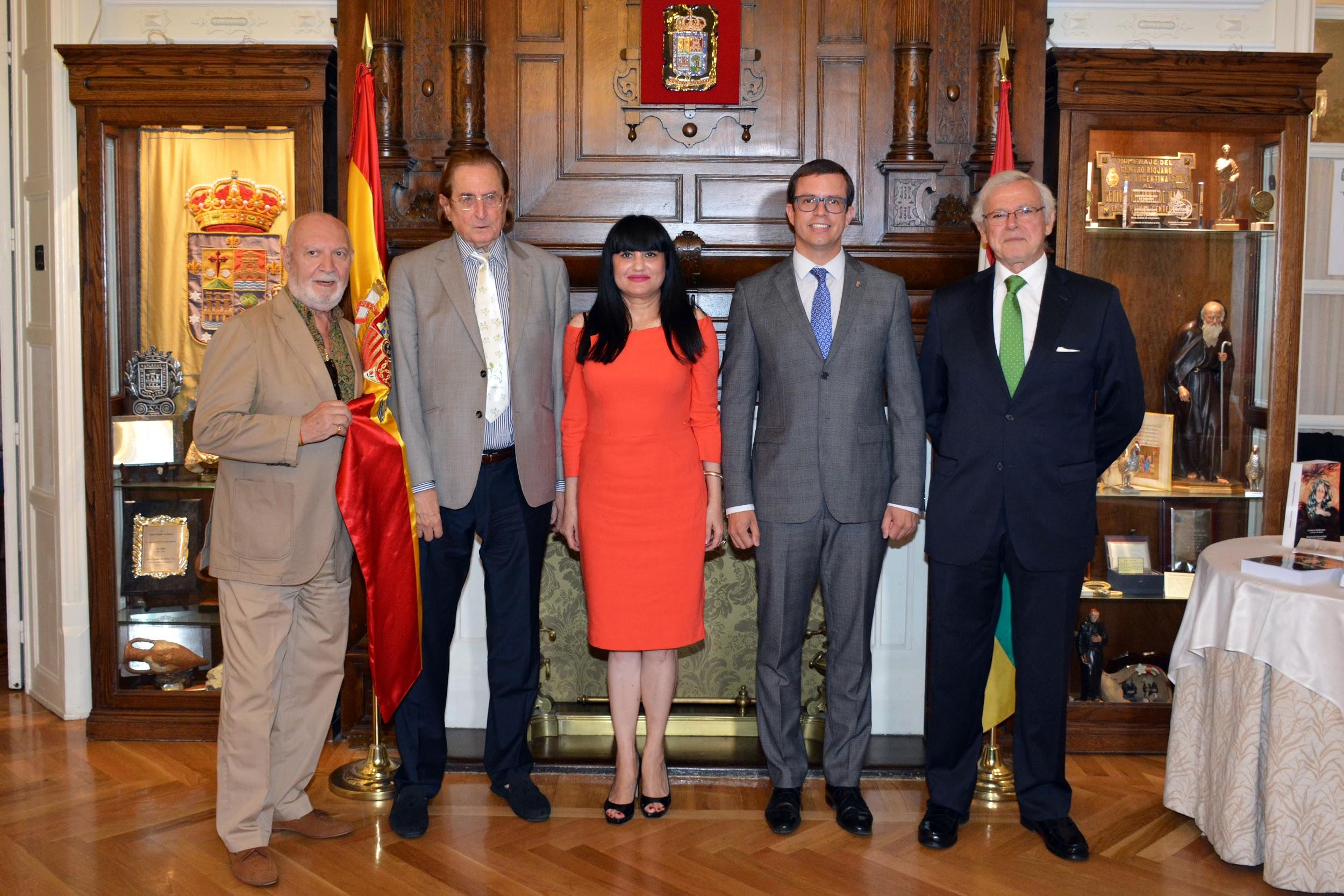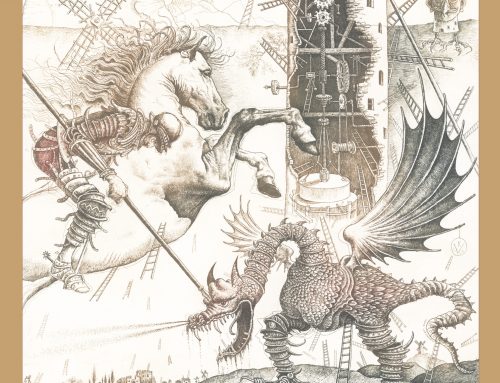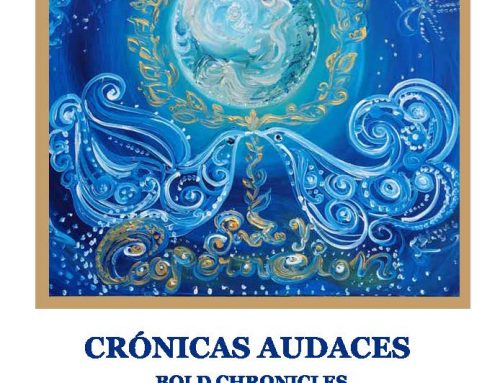In the Centro Riojano de Madrid, the Salon de la Lengua is crowded with people interested in national and international matters: the reason why they all are here on the 8th of October is the presentation of the new book by Joaquín Antuña, “Crónicas Babilonias – La Torre de Babel”. Why chronicles? Because it is a collection of the daily articles of the author, published in Galicia Digital, which everyday deal with a new subject, giving form to an intertwinement of metaphors and stories.
 The subjects of the book, alongside with the personality of the author and the genesis of the book, were introduced by a roundtable composed by the president José Antonio Rupérez, the journalist Roxa Ortiz, the Spanish ambassador Arturo Pérez Martínez and Antuña himself. Every panellist recovered a crucial role in this publication: respectively, they were in charge of the written presentation, the prologue, the epilogue and, obviously, of everything else.
The subjects of the book, alongside with the personality of the author and the genesis of the book, were introduced by a roundtable composed by the president José Antonio Rupérez, the journalist Roxa Ortiz, the Spanish ambassador Arturo Pérez Martínez and Antuña himself. Every panellist recovered a crucial role in this publication: respectively, they were in charge of the written presentation, the prologue, the epilogue and, obviously, of everything else.
José Antonio Rupérez defined Antuña as the “reporter of the Centro Riojano”: in fact, of the ten books published by Antuña since 2015, this one was the fourth presented in the Centro. And they are not rapidly created books: for example, Crónicas Babilonias has more than 500 pages. And even though it might scare off, you can finish to read that in no time at all: José Antonio highlighted the mental agility and irony of the author while describing events of national and international relevance.
Roxa Ortiz began her intervention recalling the moment she met Joaquín Antuña, iconically on a 14th of July: symbolic, as he has dedicated his life to the diffusion of subjects on the matter of sociality and solidarity, not only in Spain, but also all over the world, personally and through Peace and Cooperation, founded in 1982 and awarded with the Consultive Status by the United Nations.
She revealed us the meaning of the title as well: why Babylonia? Because of the myth of chaos and lack of order which were always associated with Babel, the same we are living now. The most careful will notice a similarity between Nabonidus, king of the city, and “Divino Pedro”, who needs no further introduction. Moreover, in the Crónicas, there are many characters whose identification is not so easy, reason why it is necessary to read this book with an open and agile mind.
Actually, the ambassador Pérez Martínez suggested to transform the Crónicas in a comic, such a pleasant moment it is for him to read Antuña’s articles every morning at 7. As he worked for many years with OSCE, he congratulated Peace and Cooperation for the school campaign 2020, in collaboration with OSCE itself on the matter of youth. He highlighted the articles related to religious themes as well and the meetings which have shaped Antuña’s ideals, for example, Gandhi and Nelson Mandela.
Finally, the author took the stage: his intervention was a panoramic over some nowadays matters contained in the book, such as feminism against machismo, the environment as new religion while traditional religions lose their importance, the political situation of Spain, which is going to experience the fourth elections since 2015, the hegemony of the United States and the threats from China and Russia – however, more or less believable.
He underlined the collaboration between Peace and Cooperation and Jeffrey Sachs, co-developer with Kofi Annan of the Sustainable Development Goals and professor at the Columbia University, critical of Trump such as his colleagues in the Democratic Party.
Some questions and the selling of the majority of the books proved the interest of the audience on the conference just ended; the act was closed with a degustation of Riojano wine, to remember that the Centro Riojano is a place where to nourish both the body and the mind.
An unforgettable evening, an author in vogue and a great Centro Riojano. Congratulations to everyone.






